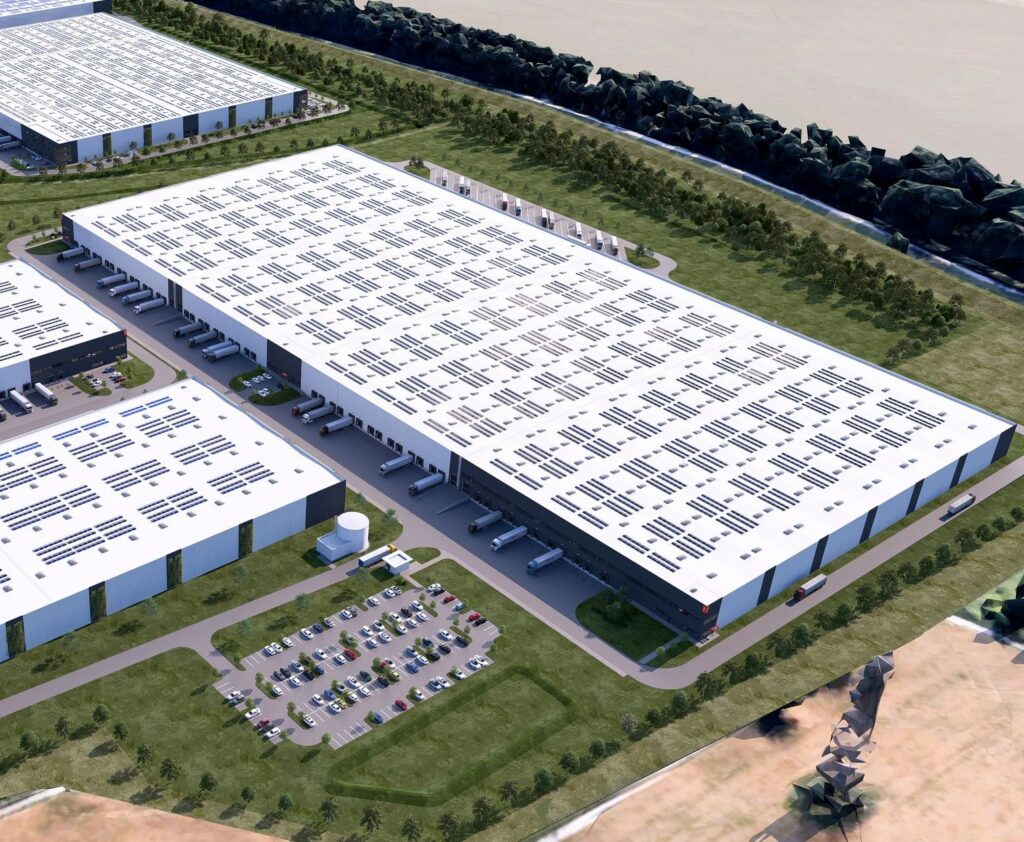UK pension fund pledges £250m to data centre megaproject
The Universities Superannuation Scheme (USS) has committed up to £250 million to Blackstone’s £10 billion data centre project in Northumberland, marking one of the most significant UK pension allocations to a domestic digital infrastructure asset.
The site, formerly home to the collapsed Britishvolt battery gigafactory scheme, will now be redeveloped by QTS Realty Trust — Blackstone’s US-based data centre platform — into a 540,000 sq m hyperscale campus. According to planning documents approved by Northumberland County Council in March 2025, the facility will comprise up to ten buildings, delivering a total IT capacity of 720MW.
The investment aligns USS with the UK government’s Mansion House Compact, a post-2023 policy drive urging defined benefit schemes to increase allocations to unlisted UK assets to stimulate economic growth.
The QTS-led development will create over 1,200 construction jobs and 400 permanent roles. It is positioned to serve AI and cloud computing clients with large-scale power and connectivity needs.

“We believe data centres are an ideal investment for USS as digitalisation accelerates. This asset matches our long-term horizon and supports our members’ pensions while backing UK economic growth,” said Ben Levenstein, Head of Private Markets at USS.
Blackstone acquired the 95-hectare Cambois site for £110 million in April 2024, following Britishvolt’s insolvency in early 2023.
The development will benefit from proximity to the North Sea Link interconnector and access to renewable power — critical factors in attracting hyperscale tenants amid growing scrutiny of data centre sustainability.
As part of the planning approval process, Blackstone has also pledged £110 million to a local investment fund supporting job creation and skills development along the new Northumberland Line, which began service in December 2024.
The line is a reopened passenger railway in North East England connecting Newcastle to Ashington as part of the UK government’s levelling-up transport initiative.
Northumberland County Council described the Blackstone project as “transformational” for the region, while industry analysts see it as a signal moment for UK real estate’s evolving exposure to digital infrastructure.
The projects’s first phase expected to be completed in 2027.
Analysis: The UK data centre market is quickly becoming one of the most attractive areas for institutional real estate investors. With demand for artificial intelligence, cloud services, and secure digital infrastructure rising sharply, data centres now offer long-term income, inflation protection, and room for expansion — when many traditional property sectors are under pressure.
According to Arizton Advisory & Intelligence, the UK market is expected to grow from just over $10 billion in 2024 to nearly $23 billion by 2030, reflecting annual growth of 13.3%. This is driven by rapid digitalisation across industries and the growing need for high-speed, low-latency infrastructure to support AI and cloud applications.
According to Cloudscene, as of May 2025, the UK has 523 operational data centres, placing it third globally behind the United States and Germany. The US has 5,426 facilities and Germany has 529, highlighting how much room there is for growth in the UK. While London remains a key hub, development is increasingly shifting to regions like Northumberland, South Wales, and the Midlands, where power, land, and planning approvals are more accessible.
These regions offer lower entry costs than the South East, yet still meet the needs of large technology tenants. Investors who secure sites early in these areas could benefit as demand spreads outwards and competition increases. Access to electricity, connectivity, and supportive local authorities make these locations especially appealing for long-term development.
Policy is also reinforcing the investment case. The Mansion House Compact, introduced in 2023, encourages UK pension funds to invest more in domestic private markets. Data centres — offering reliable income from long leases with major technology firms — align well with that goal.
Crucially, data centres are no longer seen as niche or high-risk assets. They are now viewed as essential infrastructure, similar to utilities. Tenants typically sign leases lasting 10 to 20 years, often with inflation-linked rent increases. Once operational, these sites are difficult and costly to replace, making income streams stable and predictable. Limited power capacity and high build requirements also restrict new supply, helping to protect rental values over time.
Although smaller than the US market, the UK sector is growing quickly and attracting a new wave of institutional capital. For investors looking for long-term, dependable income backed by digital demand, UK data centres now offer one of the clearest and most credible opportunities in the market.



